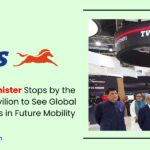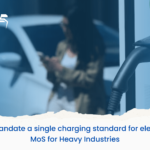
IKEA Introducing EV Delivery Fleet Expands Make in India
IKEA India has made a significant leap towards sustainability. The company has transitioned to a fully electric delivery fleet in Bangalore, Hyderabad, and Pune. This move aligns with its global sustainability goals and sets a new standard for green business practices in India.
IKEA India Sets New Sustainability Goals
IKEA India is soon moving ahead with its commitment to sustainability. The EV First approach will be taken in all new markets, including Delhi NCR. Further, same-day delivery will soon be piloted in Hyderabad, and the service will be expanded nationwide in the next year.
2019 was the first year of EV exploration on IKEA’s road to a green future. By 2023, the company had managed 28% green deliveries, which is now an 88% electric fleet. All these efforts are very important in reducing carbon emissions and ensuring climate control.
It has therefore associated with local original equipment manufacturers and startups in a bid to spearhead this transformation. This will create an economic ripple effect by way of new job creation and the rise of powerful local entrepreneurs.
Susanne Pulverer, IKEA India CEO and Chief Sustainability Officer, focused on a sustainable value chain as a base for company growth. She was proud to point out leading the EV initiative from its early days in India.
IKEA India’s Electric Journey: A Green Leap Forward
IKEA India started zero-emission deliveries in 2019 with the introduction of electric vehicles. Before that, the company used 3-wheeled tuk-tuks for smaller deliveries. Over time, it expanded its EV fleet to include bigger retrofit trucks for larger furniture and built a robust in-house charging infrastructure.
Saiba Suri, country customer fulfillment manager at IKEA India, said the company worked not only on the adoption of EVs but also on building effective infrastructure, skill development, and future value chain opportunities.
Unlike a lot of others, however, IKEA is actively working to expand the country’s large EV charging network. All its big-format stores now have EV charging infrastructure in place, enabling delivery vans, customers, and coworkers. The company’s EV fleet is designed with advanced telematics technology that can handle a range of loads, from 680 kg to 1,700 kg.
Through large-scale EV fleets focused on continuous innovation in the area and a push towards sustainable operations through collaboration with the government, IKEA aims to make 100% EV deliveries in all its Indian operations by 2025—the same stride it hopes to make worldwide at IKEA, which aims to become climate-positive by reducing the volume of greenhouse emissions by half in 2030 and reaching net-zero emissions by 2050.
The sustainable transportation practices of IKEA are not limited to India. With the company rolling out EV solutions designed around local conditions and infrastructure within many countries, all of which reveal its global commitment toward reducing its environmental footprint, it really does spell a grand statement.
IKEA’s Electric Revolution: A European Success Story
The company has also made huge strides toward electrifying its delivery fleet across Europe. IKEA reached a milestone in 2018 when it transitioned to 100 percent electric home deliveries in Amsterdam. Now the initiative is being expanded to other European cities, which evidences how dedicated IKEA really is to becoming more sustainable.
In the UK, IKEA partnered with Renault to design custom electric vans for last-mile delivery in London. This is part of a broader ambition by the company to electrify its entire UK and Ireland delivery fleet by 2025.
Before becoming the CPO, Vinayak was the Technical Director and Principal Engineer at Ultraviolette. Since 2017, he has been leading the development of the F77 Mach 2 and F99 Racing Platform. Vinayak has been responsible for aligning all product development, engineering, operations, and manufacturing functions.
Vinayak Bhat Joins Ultraviolette as Chief Product Officer
He joins Ultraviolette as Chief Product Officer. With this enhanced role, Bhat will be in charge of scaling the product portfolio at Ultraviolette from concept and design to development and market launch. He will also work on widening the product portfolio of the company.
Before coming to Ultraviolette, Bhat had work experience in the aerospace and auto sectors. He started his career as a structural engineer with the Indian Space Research Organization in 2013. He then moved to Safran Engineering, where he worked as a design analyst. At Safran, he contributed actively to some of the main projects for Airbus and Boeing, such as landing gears, nacelles, and components of the fuselage area.
Bhat said, “My goal is to craft exceptional products for global markets through our strategy of vertical integration – Specifically across critical elements like the battery technology, drivetrain and vehicle architecture. Our aim: redefine standards and solidify Ultraviolette’s position as a global leader in electric mobility,“
“Vinayak’s in-depth understanding of aerospace and electric vehicle technologies provides him with a unique perspective that will be critical in driving our culture of innovation.” Narayan Subramaniam, CEO and co-founder, added.
Bhat co-founded a startup focusing on technology that makes drivetrains and batteries for electrically powered vehicles. This particular entrepreneurial venture provided him a platform to engage further with the field of electric vehicles.









